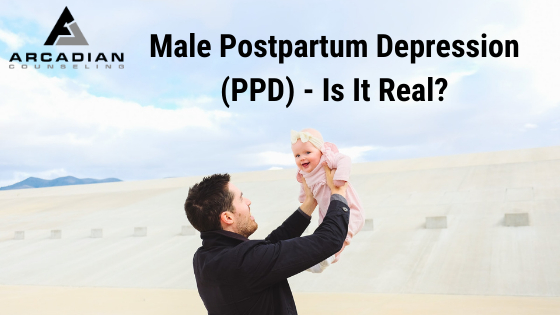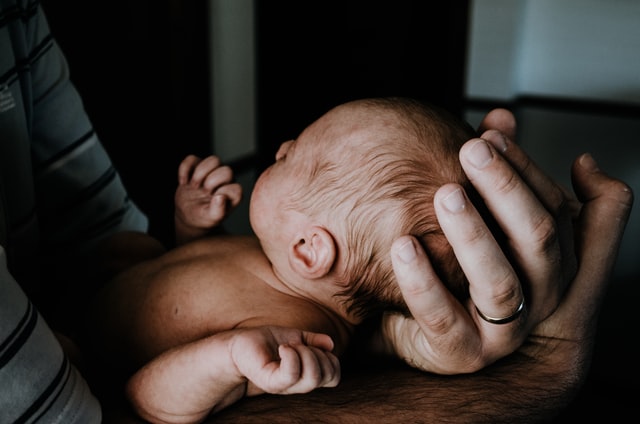Here’s the short answer: Yes, male postpartum depression is real.
Having a baby is a life-changing event that, for many fathers and mothers, brings a ton of joy and excitement. However, did you know that roughly 60% of new mothers suffer from Postpartum Depression (PPD) with symptoms ranging from moderate to severe – such as suicidal ideation?
Fortunately, because PPD is such a common health issue, there is a lot of content available to new mothers with many treatment options.
However, what isn’t often discussed is that new fathers can also suffer from PPD. While male postpartum depression is usually caused by stress and lack of sleep, not hormonal shifts, the fact remains that men can and do suffer from PPD. In fact, according to the JAMA Network, it’s estimated that roughly 10% of new fathers struggle with PPD. Other research by the APA has shown that a “similar proportion” of new fathers experience some form of depression after the the birth of their child.
Since the frequency of depression is fairly similar between new mothers and new fathers, it’s pretty hard to argue that PPD is only a women’s issue.
In light of these recent findings, researchers now recommend that both new mothers AND new fathers get regular screenings for signs of depression. This is especially important for new mothers and fathers with a history of mental health issues or a family history of depression.
common signs of male postpartum depression

Some research suggests that male postpartum depression occurs almost as often as female PPD.
- Increased anger and conflict with others
- Increased use of alcohol or prescription/street drugs
- Frustration or irritability
- Significant weight gain or loss
- Isolation from family and friends
- Becoming easily stressed
- Impulsiveness or risk-taking
- Feeling discouraged; cynicism
- Physical problems, like headaches, digestion problems or pain
- Difficulty concentrating
- Little or no motivation
- Loss of interest in work, hobbies and/or sex
- Working constantly
- Fatigue
- Feeling sad or crying for no reason
- Conflict between how you feel you should be as a man and how you are
Causes of Male Postpartum Depression
A study at University of Nevada, Las Vegas published in the The Journal of Family Issues found that there were a handful of common causes for PPD in new fathers:
Lack of Awareness
Most fathers simply don’t even realize that male postpartum depression is possible so they often ignore the symptoms (as men often do with symptoms of “regular” depression).
Gender Expectations
Many men feel the need (or the pressure) to be “manly” and act like the “tough guy” who isn’t bothered by emotions. Thank you news, social media, Hollywood, etc.
Repressed Feelings
Men are often reluctant to share their feelings, let along seek help for dealing with them. The added pressure by our culture and society that continues to push the agenda that men are strong, silent, and simply need to “man up” contributes to this poorly held and antiquated belief system.
Tips to Deal with Male Postpartum Depression

Men are tribal. Men need to connect with other men. Finding someone who can listen without judgment is crucial.
- Talk to friends or colleagues who are also new parents. They’re dealing with the same challenges as you.
- Make time for yourself to relax and do things you enjoy.
- Talk with your partner, even if it’s just a few minutes each day, to connect and work on your relationship.
- Don’t expect to fix everything. Things will go wrong, and you won’t be able to fix them. Accept this.
- Take some time off work.
- Find someone you trust, who can be objective that you can talk to about what you’re feeling.
- Eat well, practice mindfulness, meditate, and exercise.
Life is short, but male postpartum depression might not be. If you’re a new father struggling to manage the roller coaster of emotions, not to mention all the new challenges and responsibilities that come with fatherhood, find an awesome therapist or life coach you like and trust to help you figure things out.
James Killian, LPC is the Principal Therapist & Owner of Arcadian Counseling in New Haven, CT where they specialize in helping over-thinkers, high achievers, and perfectionists reduce stress, increase fulfillment and enhance performance so they can move From Surviving To Thriving.


